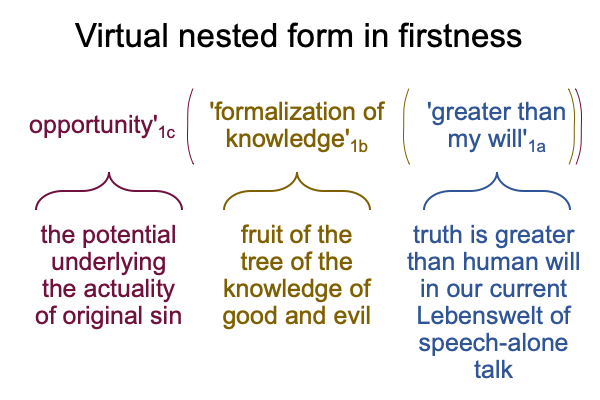Looking at Steve Fuller’s Book (2020) “A Player’s Guide to the Post-Truth Condition” (Part 1 of 26)
0023 The full title of the book before me is A Player’s Guide to the Post-Truth Condition: The Name of the Game (Anthem Press: London and New York). The book seems brief, but it packs a lot of material in sixteen short chapters… well… technically, an introduction, fourteen chapters and a conclusion.
0024 Professor Steve Fuller introduces the topic with the headline, “How I Learned to Stop Worrying and Love the Post-Truth Condition”. The headline is a tongue in cheek reference to Stanley Kubrick’s 1964 intellectually pleasing masterpiece, “Dr. Strangelove”.
Yet, one has only to trace Kubrick’s career trajectory to envision a conclusion beyond worry and love. Kubrick dies in 1999 after wrapping up a homage to the will, titled “Eyes Wide Shut”.
0025 What matters is not whether something is true or false.
What matters is how something is decided.
The first statement concerns the intellect. The second statement concerns the will.
0026 So, how is a matter to be decided?
Shall we call upon the experts?
Consider the issues of anxiety and affection. An expert may reduce diverse and unsettling experiences to phenomena that can be observed and measured. Then, the expert may build a model, using a specialized disciplinary language. Next, with that model in hand, the expert will consider avenues to control the phenomena.
0027 For example, in a casual academic encounter at a university, I meet a needy and uncertain scholar who constantly nags her compatriot and (most likely) lover about the importance of managing her anxiety. Of course, the university setting is full of people making odd demands, so I think nothing of it. Later, I find out that her “husband” is a pharmaceutical salesman.
Indeed, she learned how to stop worrying about her field of inquiry and to love her husband with his briefcase full of Valium samples.
0028 So, is there a problem?
Fuller suggests that the “distance” between the layperson and the expert shrinks, because a layperson can become acquainted with the disciplinary language of any field of expertise well enough as to ask apparently intelligent questions. Yes, a question may be posed to the pharmaceutical salesman that goes like this, “I can see that your lover is addicted to Valium. Could you tell me exactly the mechanism for how this drug operates on the love-centers of the brain?”
To which the expert in marketing scoffs, “The human brain has frontal, parietal and occipital lobes. The human brain has a cerebellum. These anatomical structures perform various specialized neurological functions. Okay? The human brain does not have a ‘love-center’. What an ignorant question.”
0029 Indeed, the salesman goes on to testify before a legislative committee on the need to monitor and reduce the amount of medical disinformation on the internet. When laypeople read books on the neurological underpinnings of sexual attraction and drug addiction, they think that they’ve learned something. They think that they can ask revealing questions. So, they stupidly ask about “cerebral love centers”.
A law must be passed to deter this conduct.
0030 What does Fuller predict?
Just as during the Reformation, when Bibles printed in the layperson’s language opened the opportunity for any layperson to interpret sacred text, the current internet allows anyone who can read to become familiar with the language of any specialized discipline. Then, that layperson may publish a podcast that asks… um… revealing questions about what experts are supposed to know best.
The cost of entry into the market is astonishing low. So, many experts argue that it is the responsibility of the state to increase that cost through regulation and censorship.

